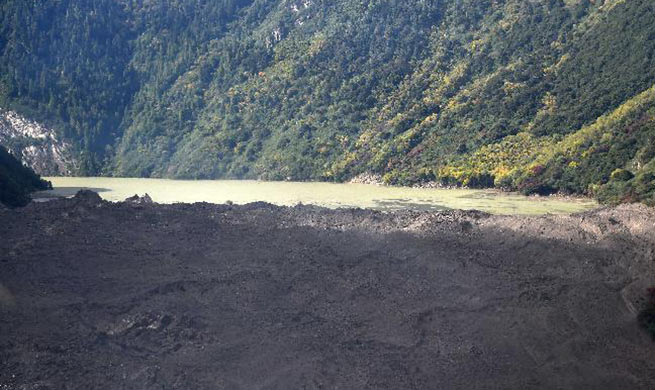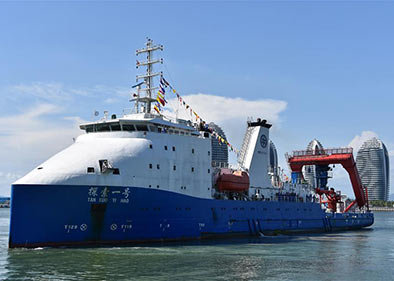LONDON, Oct. 18 (Xinhua) -- British Prime Minister Theresa May and her closest advisers were on Thursday contemplating how to scale the "brick wall" that is preventing a Brexit deal being agreed with Brussels.
The big question being asked by political commentators is whether May has finally run out of ideas in the quest to find a solution that will enable London and Brussels to find a way of inking a future relationship agreement after Britain ends its membership of the bloc.
With a deal between both sides said to be more than 90 percent agreed, the question of the border between Northern Ireland and the neighboring Irish Republic has become the big unresolved issue.
May traveled to Brussels Wednesday to address the leaders of the remaining 27 EU member states, and the border issue emerged as the big stumbling block.
Talks Thursday center on the possibly of extending by months, possibly a year, the so-called implementation period after Britain leaves the EU next March. Currently this agreement, during which non-member Britain would continue to follow all EU rules, would run until December 2020.
May said that the idea has emerged of an option to extend the implementation period for a matter of months to give time for a permanent solution to the border issue.
She told journalists: "The point is that this is not expected to be used, because we are working to ensure that we have that future relationship in place by the end of December 2020."
It now depends on whether May can sell such an extension to the contingent of strong Brexiteers among the Conservative benches as well as to the 10 MPs from the Democratic Unionist Party who shore up her minority government.
Supporters of the Leave Means Leave campaign fear a longer transition would give Brussels zero incentive to negotiate anything with Britain.
Its co-chair Richard Tice said: "The original transition was an unnecessary trap created by our weak civil servants who cannot be trusted as they don't want us to leave. It should be cancelled, not extended. It is increasingly clear the PM doesn't want to leave either."
"Any transition period gives the EU zero incentive to negotiate anything and gives Brussels the power to force whatever they want on to the UK without us being able to do anything about it. It's downright dangerous."
Critics in May's own party may also block the move. Conservative MP Nick Boles described extending the transition period as madness.
In a radio interview, Boles said he feared May was losing the confidence of people who have been supportive of her throughout this process.
Boles said: "They are close to despair at the state of this negotiation because there is a fear that both the government and the EU are trying to run out the clock, that they are trying to leave this so late that they can then credibly say that there's no alternative but a no-deal Brexit. And most people agree that would be chaos. Now that is not an acceptable way for a leader of a government to behave."
Jeremy Corbyn, leader of the main opposition Labor Party, in a statement on Thursday said: "We are leaving the EU, but we will not support a deal cobbled together by a divided and chaotic Conservative government if it's going to make life tougher for millions of people."
Labor's interior spokeswomen, shadow home secretary Diane Abbott, insisted Thursday that Labor would not rubber-stamp May's final Brexit plan.
Tom Newton Dunn, political editor of the Sun newspaper, commented that May saying a transition extension would only be for a few months feels like the "I'm only half pregnant" defense.
"Sounds weak and defensive. If she'd gone on the front foot and owned the idea with vigor, she just might have persuaded MPs. Very hard to do that now," said Dunn.
Meanwhile, Gerard Batten, leader of the pro-leave United Kingdom Independence Party hit out at the latest developments, saying: "Mrs May's Brexit betrayal slowly slithers into view. This is not due diligence;this is not a commitment to sort things out; this is a play to normalize transition indefinitely until a time when the establishment can call the whole thing off."
How can Britain and the EU part company in a way that averts a frictionless border on the island of Ireland?
Until now it has not been a problem as both the Irish Republic and Britain are members of the EU, making a border unnecessary. Once Britain leaves the bloc, it was become a third-party country, outside the EU with its cherished customs union and single market arrangements.
It leaves PM May with a lot of persuading to do to salvage any hope of an acceptable compromise with Brussels.













